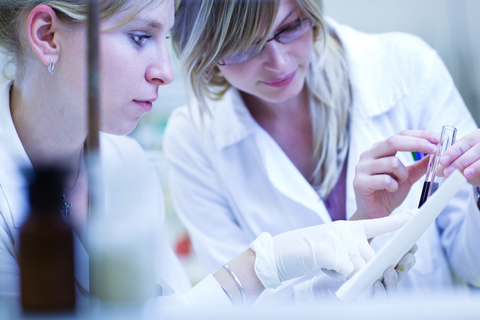Vaccination used to successfully treat Covid-19 for the first time

Doctors have successfully used vaccination to treat a man with Covid-19 in what is thought to be the first instance of the vaccine being used for therapy instead of prevention.
Cardiff University reports the virus was finally cleared Ian Lester’s body after clinicians from the Immunodeficiency Centre for Wales, at University Hospital of Wales in Cardiff, used two doses of the Pfizer vaccine to treat him and scientists from Cardiff University monitored his immune system’s response.
It suggests the vaccine successfully kickstarted his immune system to clear the virus, and it is now hoped this approach could be used to treat other patients who are immune compromised.
Ian Lester’s case is outlined in the Journal of Clinical Immunology. The thirty seven year old dispensing optician from Pontypridd has Wiskott-Aldrich Syndrome, a rare condition which causes immunodeficiency, so he has a dampened response to infection.
He said “When I first contracted the virus in December 2020, I was shocked as I had minimal symptoms; the most noticeable being lack of taste and smell. I informed the Immunology department at UHW, as I have been under their care since childhood. They were concerned as they suspected people with immune deficiencies could stay contagious for longer than average. I was sent regular PCR home swab kits to monitor my status. Although most people are able to stop isolating after 10 days of contracting the virus, I was an exception to the rule. Each test came back positive, time and time again. Months passed, which felt like a lifetime when you’re not able to go anywhere or see friends or family.
“My symptoms gradually became worse the longer I had the virus. This included extreme fatigue, lack of sleep (borderline insomnia) headaches and chest tightness. Each positive COVID swab (every 10-14 days) left me feeling more deflated and anxious. I began to feel like I was a prisoner in my own home and the days blurred into months. By June 2021, when social gatherings were being allowed again, I was feeling very frustrated and started to doubt I would ever become negative.
“In my case, the treatment options were very limited. Antiviral medication was discussed, although funding this through the NHS at the time was not viable as my COVID symptoms were not bad enough to be hospitalised. When the vaccination was suggested by the hospital to help fight the virus, I was more than willing to try it, as I trusted their clinical knowledge.”
Professor Stephen Jolles, Clinical Lead at the Centre and Honorary Professor at Cardiff University’s School of Medicine, said “Given the persistent positive PCR tests and impact on his health and mental health, we decided on a unique therapeutic approach.
“We wondered whether therapeutic vaccination could help in finally clearing the virus by inducing a strong immune response within the body.
“We administered two doses of the BioNTech Pfizer vaccine, one month apart, and very quickly saw a strong antibody response, much stronger than had been induced by the prolonged natural infection.”
Ian Lester said “After my first vaccination in May, PCR testing began to suggest my body was finally fighting the virus. This got me very excited, and I dared to imagine normal life again. Unfortunately, this was short lived, causing more frustration. The second vaccination was given to me three and a half weeks later – and eight weeks later I started to get consistent negative COVID results.
“I was over the moon and beyond relieved to finally be negative and get my life back on track. I was really lucky to have a strong network of family and friends supporting me, which helped keep me sane. Since becoming negative, I have noticed some symptoms of long COVID. But it’s a small price to pay for freedom.
“I’m very grateful for all the help and care from the doctors and nurses in the Immunology Department team at UHW. I really felt like they were by my side every step of the way, and happy to listen to my concerns. They went above and beyond for me. I will be forever thankful.”
Dr Mark Ponsford, a clinician scientist from Cardiff University’s School of Medicine, said SARS-CoV-2 clearance was finally confirmed seventy two days after the first vaccination dose, and two hundred and eighteen days after it was first detected.
He said “It was a pretty astonishing moment.
“To our knowledge, this is the first time mRNA vaccination has been used to clear persistent COVID-19 infection. Importantly, the vaccine was well tolerated by the patient and successfully induced a strong antibody and T-cell response. This was remarkable given Ian’s response to conventional vaccinations in the past has been extremely limited.”
Scientists will need to reproduce this work to confirm the link and see if it can be used in other cases.
Mark Ponsford said “We have all seen how vital vaccination is to the ongoing fight against the global pandemic – but our study is the first to highlight the exciting potential for it to be used as a treatment in persistent infection.
“While genetic causes of immunodeficiency are rare, there are many more individuals whose immune system have been suppressed because of their medical conditions and treatments. We should be alert to persistent COVID-19 infection in this setting and develop the tools to respond accordingly.”








